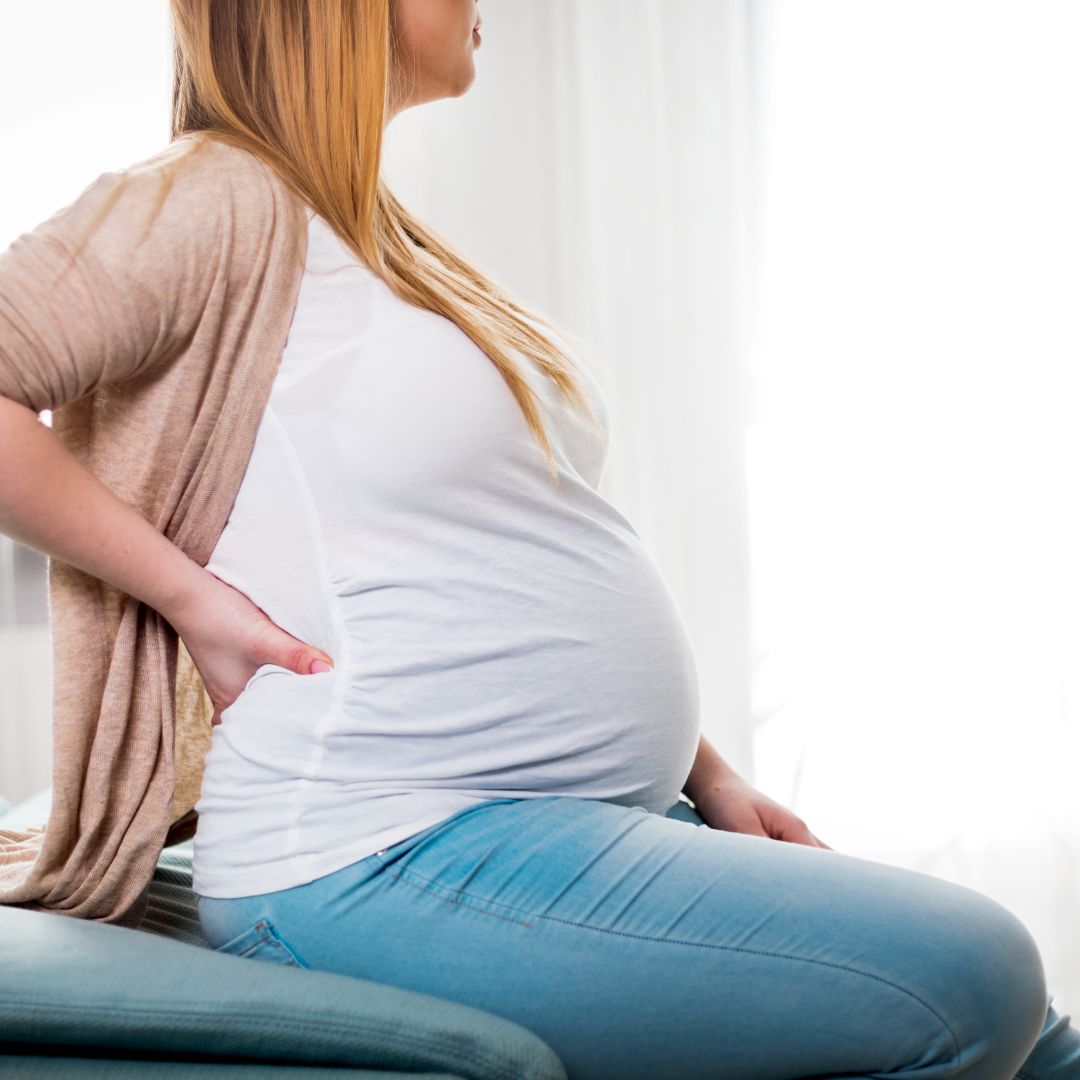
by: Heather Jeffcoat, DPT - Women's Health Physical Therapy, Los Angeles CA
The baby belly. It’s the most obvious way a woman’s body changes during pregnancy. But the transformation is so pronounced that it causes somewhat less visible—but still uncomfortable—physiological changes. Pregnancy-related back pain can be so severe that it interferes with one’s quality of life, which especially for active moms who had planned to continue their active lifestyle throughout their pregnancy can be downright depressing. To make matters worse, pregnancy-related back pain may extend into post-pregnancy period, and may interfere with healing during this time due to the inability to walk or do other forms of exercise, which are critical in the early recover period.
What causes pregnancy-related back pain, especially in the lower back?
- Altered Posture: As the uterus expands and the belly is pulled forward by gravity, the body must make several adaptations in order to maintain balance. Naturally, the pelvis tilts anteriorly exaggerating the spine’s natural S curve. This change also results in more rounding of the upper back and pushes the head and shoulders forward. This creates stress on the neck, shoulders, and middle back as well. For many women, the result is pain as the already strained muscles are forced to work even harder.
- Disc Pressure: Increased weight (such as baby weight) creates a heavier load on the lumbar (lower) spine as well as the discs. When the pressure within the discs increases, the outcomes range from pregnancy-related back pain, and rarely, to excruciating herniated discs.
- Sacroiliac (SI) Joint Pressure: Sacroiliac is the anatomical name for the joint near the bottom of the back where the sacrum and pelvic come together. During pregnancy, the body releases the hormone relaxin to allow the baby to pass more easily through the birth canal. Unfortunately, relaxin also makes the ligaments that surround the SI joint more elastic, making it less stable. What’s more, pregnancy weight gain places additional pressure on the already weakened joint. This often triggers pregnancy-related back pain in the lower back, ranging from a dull ache to a sharp pain. It will differentiate itself from lumbar pain in that the pain is below the level of the lumbar spine and is oftentimes one-sided.
- Shifted Center of Gravity: In later stages pregnancy, women can gain as much as one pound per week—and that wreaks havoc on the body’s center of gravity. The change alters a pregnant woman’s center of gravity thereby affecting her balance. This increases her risk of injuring her muscles and ligaments.
- Uterine Expansion: The abdominal muscles play a critical role in supporting the lower back and spine and thereby supporting one’s posture. As the belly grows, it stretches and creates weakness of the abdominal muscles. This creates increased strain on back muscles and ligaments and may lead to pain.
How can expecting moms find support to relieve and prevent pregnancy back pain?
You don’t need to suffer with the back pain caused by pregnancy. Physical therapists have a range of solutions to help support the lower back and pelvis:
- Back Pain Relief Exercises: Your medical professional or physical therapist will be able to recommend exercises that help support the lower back by taking pressure off of the pelvis and abdomen, such as the pelvic tilt or stretches that target short, tight muscles. Pregnancy massages may also provide relief. Always speak with your doctor, midwife, or physical therapist before undertaking any exercise during pregnancy.
- Properly Designed Maternity Support: A good lower back and pelvic support garment (AKA a pregnancy support belly band), like the Body After Baby MotherLoad™ pregnancy support, is more than a simple elastic binder; it’s specifically designed to stabilize the lower back and pelvic region. Using contoured, comfortable panels, the band provides the support to relieve pregnancy-related back pain by supporting the pelvis and hips to distribute the increased weight more effectively.
Proper support for the lower back plays a surprisingly important role during pregnancy and post-pregnancy healing. If you’re expecting, you owe it to yourself to prevent and relieve pregnancy-related back pain.
